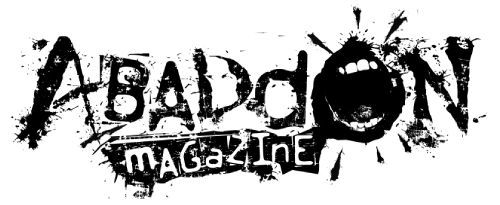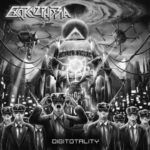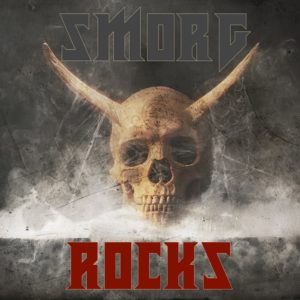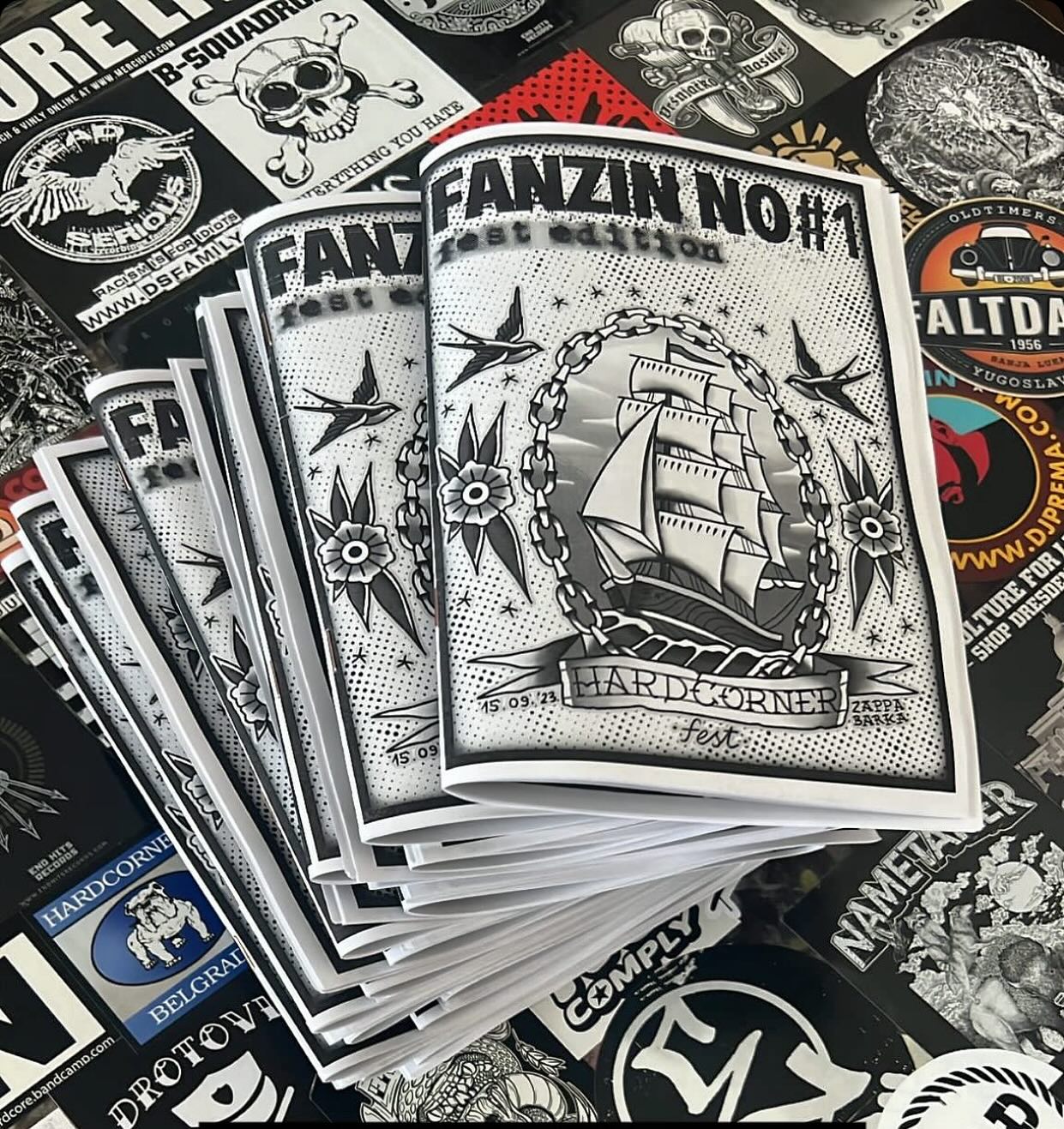My first touch with the band Protokult was last year when we published news on our website about their new video for the song “Feed Your Demons”. Protokult immediately caught my attention so I had to check all their albums and later, to contact them for this in-depth interview. I have a feeling that the best is yet to come from this five-piece folk metal act from Canada. Martin (vocals/guitars) was answering our questions.
Hello guys, how are you these days?
Eh, been surviving and adapting. Every 100 years or so, the human race/civilization faces a major crisis (man-made or otherwise), I think we’ve been through worse, and we will get through this. We all have families, jobs, other interests so I think it’s important to lead a well-balanced life, physically, mentally, spiritually etc.
Since this is the first Protokult interview for our magazine, let’s talk a little bit about the history of the band? When was the band formed and what are your goals with the band? How did you discovered metal music and decided to form the band?
Protokult was conceived somewhere in between 2003-2004. I met a couple of Slavs in high school and we knew we did not fit in with what was popular or current metal trends. We started just jamming and having fun in late high school, obviously mostly covers and some very bad original attempts, but of course, this was a learning curve. It wasn’t until around 2008-2009 where cultural and folk-themed interests took place, which solidified the direction we wanted to go in, to maintain traditional metal ethics/principles while exploring and embracing who we are (Polish, Russian, etc.).
What’s the story regarding the band name – Protokult, what does it mean?
The original singer and I just had a list over MSN (old chat) and were swapping/sharing ideas, eventually Proto-kult came together and we decided it sounded snappy and good enough and for better or worse, we have kept it ever since (Maybe we are lazy or maybe we don’t want something cheesy or cliché).
Over the years we’ve come to realize it is the perfect name and representation after all:
a) We never fit into mainstream/popular trends
b) We’ve been a DIY independent band now for over ten years, so I think it’s saying something; we honor and represent this genre (folk, thrash, black metal etc) as a subculture meant to be enjoyed and appreciated in the underground.
Hails! Keep it KVLT!
It’s not easy to define your music, since it has a lot of different elements. Let’s say you are playing folk metal but we can also hear black, power, thrash, and folk elements. What are your main musical influences?
It’s impossible to narrow down; most of us strongly feel that it’s an idea and feeling that defines and inspires rather than specific genres. Of course, I honor and appreciate the New wave of heavy metal, 1st and 2nd wave of thrash, black metal; even early power metal; so let’s say for me personally, Emperor, Type O Negative, Windir, Arkona, Bathory, Helloween, Sodom, Nokturnal Mortum, Fear Factory; all bands who defined themselves and evolved the genre. Then again, from a song-writing/world lens, I’ve always admired Depeche Mode, Dead Dance, Jean Michel Jarre, Tchaikovsky, Chopin etc. so to be viciously frank, the genre/labeling has never concerned me.
The editorial staff of Abaddon magazine really liked your newest album “Transcending the ruins” it’s an excellent record! But, unfortunately, I didn’t have a chance to get the lyrics. Could you tell us a little bit about them? What themes are you covering?
Thank you. There are some Polish-Russian sections but since we are technically a North American band, we’ve kept the majority of lyrics in English. I can share the general meanings of the songs and some of my favorite/catchy lyrics…
Mark Of Thunder – the historic hardships and perseverance of the Slavs, particularly, Poles. In Pagan times, Perun was worshipped as the Thunder God of war, thus depicting their fighting, persistent spirit.
“To no enemy shall I yield, Perun be my guide!”
Feed Your Demons – managing addiction and dealing with regret, maintenance and coping.
Hopefully learning from past mistakes and regrets.
1516 (Keeper of the Hops) – the year the Bavarian purity law came into effect. German beer to this day holds the highest standard keeping the three natural ingredients to a minimum: hops, barley and water. Coincidentally, some of us are big German power metal fans so the song is also dedicated to the genius of Kai Hansen (Gamma Ray, Helloween), thus featuring the blazing falsetto of AMMO singer Jesse Harvey.
Oy Kanada – written and released on Canada’s 150th anniversary, this song commemorates the majestic, vast Canadian landscape and plugs our superior beers. The original single was released in 2016 but with the addition of Kaveh and Jack (2017), we rerecorded to showcase the new lineup talent and sound.
Troubled Lad (Slainte Mhaith) – a brief account of our former Irish-Canadian keyboardist who had to leave the band in order to pursue his Gaelic studies at Harvard. He was and is dearly missed and this song deals with integrating into modern multicultural society, particularly those who have multiple backgrounds/ethnicities.
Na Gryanoi Nedele – a traditional Russian folk melody meant as a prelude to Rusalka, mentioning the seduction and allure of the water nymph(s).
Rusalka – in old Slavic folklore, the Rusalka was the spirit-form of a dead/drowned girl; she would seduce traveling men with her beauty and drown them; similar to the Greek sirens (though more ghastly and morbid in some accounts).
“Take me to the sea, I have lost the will be…I shall die in thy arms.”
Valley Of Thorns – from a sadistic/sadist’s point of view, about a man who continually places faith and devotion in women, only to have his heart, dreams and aspirations crushed each time. He learns to cope and even enjoys the pain but eventually transcends the certain type of women he has been drawn to his entire life. Though a painful past may contribute to your Being, the song is about fighting that past, and moving forward.
Wenches – over the years, the band has had several gorgeous ladies accompany the onstage antics; often dancing and pouring mead or beer from a ritual horn into the willing audience. The more PC crowd may call them “beer maidens” but wenches have been a crucial component in pub life and society. From an inebriated “pirates” point of view, this is a hymn and tribute to all the lovely wenches across the world and those we have worked with.
“Wenches, all around, fill me another round, woman- fill me face, come on take me home”
Greet the Dawn– the power of friendship, after a night of excess, two star-crossed friends converse, share their dreams and beliefs until the morning light.
Dead New World –witnessing a crumbling society on the brink of dystopian collapse, a narrator disconnects from the lifestyle he has been living and seeks higher purpose and meaning. Indifferent to so-called “progress”, he is leaving modernity behind with his new personal morale compass, he enters a state of euphoria, taking solace in Tradition and the ways of old, in essence, attaining Transcendence.
What’s the response from fans and media regarding “Transcending the ruins”?
I don’t exactly follow every single comment or review but 80% + have been positive which is great. The bottom line – if you enjoy heavy metal in a variety of forms with a solid, respected nucleus/foundation, you will appreciate this album! I’ve read a few negative comments and it’s always hilarious, it’s usually some dinosaur who is stuck in the ’70s or some redneck who thinks metalcore is the only thing important (haha) or some liberal hipster who ACTIVELY seeks out edgy lyrics and wants to push the band into a politically-affiliated corner. Can it be any more pathetic? Some of these “reviewers” are the lowest form of life who have a MINIMAL concept of metal (let alone music) so it’s amusing when you hear these things. Personally, I think the production was a little too “polished” but the energy and performance is all there. Fuck the critics, try it yourself!!!

I noticed that you guys are releasing albums with your own forces, without any label. What was the reason for that decision? Only your debut was released for some labels, but later you were and still doing it all on your own.
Around 2010 Boonsdale records (Toronto company) re-released our debut album and Maple Metal had been distributing a lot too; extra support is always appreciated because it can ensure more people listen to the actual music. But to be honest, big labels are a thing of the past. Of course, for a new band they can help but THINK of the circumstances/agenda: MOST major labels want you to do this, sound like this, and I’ve heard horror stories like you wouldn’t believe. Some local friends had a big label, even played Wacken, guess what? They still ended up broke and miserable. As musicians and artists you have to remember why you do this in the first place, the love, the expression, the therapy, the message; the industry/business is all the headaches and bullshit that unfortunately (a necessary evil) gets attached with it. So the few labels left out there, good luck! We will keep doing what we’ve always done, writing proper heathen-metal and not giving a FUCK about any trends!
(side note: Turisas, Arkona, Skyforger – all amazing bands who brought a part of their culture into the metal scene. 10+ years later and whom is the most popular band of this genre left with relevance (sales, interest etc)? ALESTORM – “pirate” metal, a bunch of nerds who even badmouthed Running Wild when I met them; this shows you the intellect and interest of some of the metalhead communities and scenes.
I also have to ask you about some lyrics from your previous releases. The first one that caught my attention is “My Father’s Word” from the album “No beer in heaven”. Where did you get inspiration for that song?
This was Ekaterina’s department, still probably one of her favorite songs. If one’s familial circumstances are alright, then of course the father-figure/patriarch plays a crucial role in the development of a child. Most of us in the band were fortunate to grow up and be inspired by our fathers, but Ekaterina especially, coming from the post-Soviet country and having a hard-working father who really pushed, and brought out the best in her, this is where those lyrics originated.
“Flight of the Winged Hussar” – if I understood this one is inspired by Hussars(Heavy cavalry), am I right? By the way, I read an interesting fact that early Hussars were actually light cavalry of exiled Balkan warriors.
Half the band is Polish so of course, we were going to do a song about the Winged Hussars! Yes kids, we did it BEFORE the Sabaton version hehe. This is cavalry which resonates in the minds of most Polish kids; the tactics, the battles, the style, this is the stuff of legends and history! I’m aware they had Hungarian origins but the bottom line, they were some of the fiercest warriors for a time and saved Europe, that was my intention in the song, to honor and reflect.
“Desert Scourge” – this one has the Middle East – vibe. What’s this song about?
Ah, this was one of those last-minute additions to the “No Beer…” album. I had doubts about this song since it sounded too different than anything else I had ever written. Our 2nd guitarist at the time managed to convince me that it’s a really, cool heavy song and to forget about being labeled, so we ended up recording it on the album. I was going through a pretty rough breakup with a Persian girlfriend at the time and kind of used this oasis-in-the-desert metaphor (which turned out to be a nightmare); added certain scales to emit that quality, some ethnic vibes and percussive outro and it came out rather well!
“Gorale” – this one is written in Polish.
Dedicated to the highlanders of the Zakopane/Tatry mountain region. Some of the hardest working and modest people I’ve ever encountered. I remember hiking those beautiful mountains in my youth on several visits to my Motherland, Polska, and what an influence and inspiration! The stillness, euphoria and silence at those altitudes, easily my top 10 places in the world – I tried to capture some of that in the song. Even the ambient mini-intro is a riff from Bystra Woda (traditional song).
What’s the story behind the two hidden tracks “Brotokult” and “We Smoke the Ganga” from the album “No Beer in Heaven”?
Don’t do drugs (excessively). We got used to this tradition with all the previous albums of having some kind of “hidden” track(s); on Ancestral Anthems it was the Onkel Tom medley, on Marzena there was an acoustic/instrumental hidden track, so we had this inside joke of having a real “Black” metal song with steel drums; the guitarist and I were smoking a lot back then and joked about appealing to a more diverse audience (techno fans, Caribbean/Jamaican community etc), the funny/sad bit is our bassist Dave always encourages these ideas (and he doesn’t even do drugs), but when he’s around you, he has a ridiculous positive energy that makes everything better/ok…so it worked on us.
In 2011 you released an EP “Marzena”. I really like the song “Marzena” not just because it’s an amazing song, but also due to the fact that I was running my own fanzine called Marena hehe. Again, could you tell us a little bit about the lyrics and themes that you are covering on this release?
This was our first debut with Ekaterina, although a bit inconsistent, it is still a fan favorite to this day. The title track says it all, the winter Goddess personified and is being burned to welcome spring. “Hej Marzena Hej La Ho, Spring is here now down ye go!”, so i’’s describing that ritual in Slavic history/mythology (of welcoming Spring). Marzena, we bless you, onwards towards Nav you enter. Now in proper Polish, it should be Marzanna but we also have a word for hopes/aspirations, marzenia, so did I fuck up or just wanted to be clever? That’s for the listener to decide!
This was our first release working with Glenn Fricker of Spectre Sound (check out his excellent gear Youtube channel) and we learned a lot.
Also, our dear friend Andrey Yakovlev created and provided the beautiful artwork/painting of the abstract Marzena/Maslenitsa (still my favorite).

In 2009 you released the debut “Ancestral Anthems”. it’s a really good record! On the debut, you were more into black metal inspired by bands such as Nokturnal Mortum. How do you look at that album today and the period when you released it?
Thank you. The Ancestral Anthems formative era (2007-2009) is when we tried to dial in what we wanted to do and tried to settle on a more clear-consistent genre and sound. Until then we had no clue what we were doing, just partying a lot, playing covers and going through a plethora of lineup changes! So of course, a bunch of early songs got scrapped and by the time we were ready to record the album, all those early influences from our teenage years (Slayer, Rammstein, Nokturnal Mortum, Emperor etc) accumulated and resulted in a VERY heavy, diverse but bold debut, in my opinion. You can hear all those influences on that album. No click-tracks/metronome was used during the recording, it was just 4 young guys in their early 20’s rehearsing a lot and not giving a fuck about current metal trends or any expectations! Sure, folk-metal was popular then (probably at its peak), but we NEVER started to experiment in this genre just because it was kinda popular/cool, like I said, it just felt right, natural and representative of who we are, and I’ll still swear by that to this day. If you do a thrash or death metal song about old Slavic rituals, it may not be the most convincing or representative you know?
Looking back, from a production and some performance standpoint, sure, there might’ve been a few things I’d do differently, but that’s part of the charm of an album: being a representation/reflection of the band at a given moment in time. We were young, angry, eager, drunk (often) and stood out (for better or worse) in our country.
Could you tell us more about lyrics from your debut “Ancestral Anthems”? I’m especially interested in the song “Krak and the Dragon of Wowel Hill”.
There’s a fair bit of mythology on that one for sure; Awakening deals with the legend of King Boleslaw and the sleeping knights in the mountain, one day waking up to once again defend Poland. Pagan War is for standing up against any Judeo-Christian religion(s) and returning to the way of ancestors. Into The Freezing Storm – it’s an epic anti-romance haha, dealing with breakups over and over again, just getting used to it!
“Krak and The Dragon…” deals with the old legend of Krakow, of how a young cobbler boy managed to kill a dragon that was terrorizing the town, only to become king. This was all in pre-Christian times.
Some of the other songs I was dealing with a lot of angst, confusion and uncertainty in the world, feelings, ideals and perspectives I had since my teenage years and was finally able to express them, so some of the lyrics/themes deal with isolation, hatred and such.
You were sharing the stage with Arkona. Also in a couple of your interviews, you guys are mentioning them as one of your influences. Since Arkona is my favorite band, I’m interested, how was your experience sharing the stage with them and how did they respond to your music?
Yeah, we’ve seen and played with them numerous times, I remember seeing them in a basement the first time maybe in 2009 in Canada and they were miserable, tired, but guess what? They came back the year after, and the year after that and eventually played Pagan Fest and several bigger shows. So I admire and respect their persistence and work ethic.
We’ve played at least 6 or 7 shows together and it’s a special feeling when you’re watching one of your favorite bands deliver their special energy and message; I even saw Volk and Kniaz enjoying our set a few times so they were always humble and respectful. I thought perhaps there was some language barriers (My Russian has certainly improved since the first time we met/played- Paganfest 2012), but even with Ekaterina trying to chat with them, they are very to themselves kind of people. Polite but somewhat distant and strictly work/performance oriented- so no crazy parties or anything like this ever happened, sadly.
I’ve always respected and admired their work and still do, and we never freaked out like some celebrity crush bullshit when first meeting them, I did wish to marry Masha at some point in my younger days but we are both happily married to our own respective partners.
On a fun side-note: Ekaterina did interview Masha a few times and out of good manners, even supplied Russian-cuisine to the band on a few occasions when they came to town(for which they were grateful)
What also drew my attention is the project in which your vocalist Ekaterina is involved. The band is called “Meden Glas” and they are singing folk songs from the Balkans! So how did she got involved in this project? Do they sing some songs from my country Serbia? Also, do other Protokult members play in some other band/project?
She has been with Meden Glas for a few years; this started when she was studying musicology at a university. Several students were in this group as well as one of her professors. This is a very upbeat, ethnic group that plays yes, mostly songs from the Balkans. I cannot tell you exactly which songs from where they play but I have seen them perform a few times and there are many songs from Macedonia, Croatia, Serbia etc that deal with goats, getting married and other simple everyday life and mishaps!
Other projects…yes, we all try to do something different here and there. I am involved in a gothic/doom-symphonic project called Mortalfall (a must for fans of Paradise Lost, Tiamat, old Nightwish, Therion etc) and also do some Type O Negative tribute in a band called Xero Tolerance. Also 2020 being the crazy year it’s been, with all these circus guidelines and double-standards, I’ve decided to explore and reflect some of the current madness in a Black metal/Grind project entitled, Apegod (2021 release)
Ekaterina has another folk project called Blisk and Kaveh (drummer) and Jack have an excellent thrash metal band, Korrosive. Kaveh is also involved with Into Oblivion (archaic black metal) and I believe Perliaxe Occlusion (death metal).
The next question is not easy to answer due to all this Covid situation. What are your plans for 2021?
It’s been challenging and of course frustrating but every time you once said, I don’t have the time to do so and so. Guess what? NOW that time and opportunity is here. I know it sounds cliché, but one must try to see the positive in situations, especially when growing up. Any live plans of promoting the new album/music are pretty much dead and we thought about doing some kind of live stream but there are too many variables involved; we’re a LIVE and chaotic band, and we need and feed off that, so even if we get an amazing film crew, amazing sound, lights and such, I still think this will not do the Protokult live ritual justice, so I have decided to abandon this possibility and completely agree why certain bands don’t want to do this.
Another funny thing? (and I’m sure you know of bands like this too…) Those bands who delayed/resisted releasing new music in 2020. Imagine the ego and self-absorption! Our fans waited over 3 years for this album to be released so we figured, ok, a lot of people have time and are at home, HERE YOU GO! It’s the right, honorable thing to do. So given the 2021 situation, we will be recording a few new songs that can potentially end up as an EP or a split. New merch (shirts) are on the way so any support through our bandcamp and official site is always appreciated. The fans are the ones who keep this music alive!
Guys, thank you a lot for your time and for the excellent music! I wish you all the best in the future! Feel free to finish this interview with a message for all those who are reading this.
Thank you for the kind words and interest bratko and BIG thanks and hails to all our Serbian and European fans! You guys are the reason heavy metal is still powerful and alive! Keep the metal true, stay fit, healthy and sane and we will emerge out of this COVID nonsense, better, smarter and stronger!
